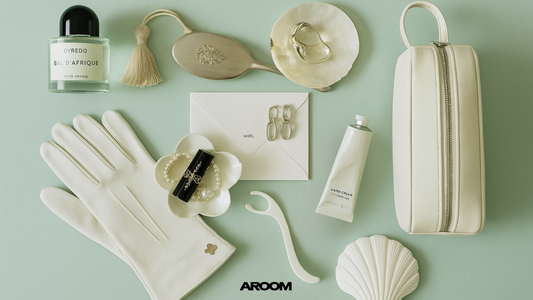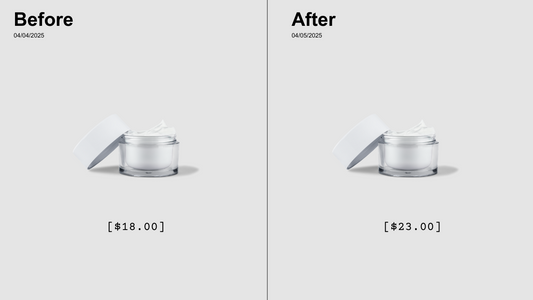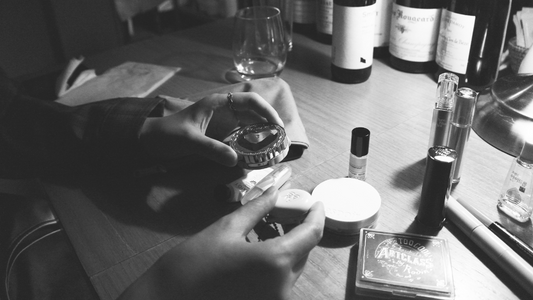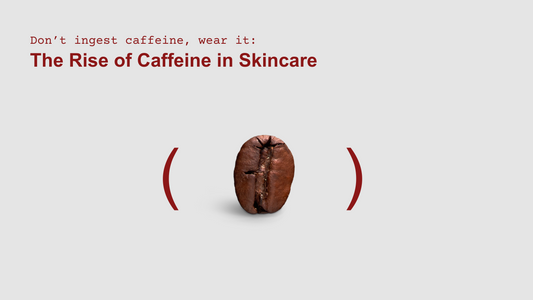
From $0 to Launch: Early Lessons From Building a K-Beauty Brand
Sieun LeeShare
Being a “Founder” is not a luxury
This decade has the world turning in mysterious ways. In just ten years, the world has fast-forwarded through radical shifts in tech, climate, and capitalism — some dazzling, others deeply destabilizing. We’ve watched the rich get richer, and their mythologies rewritten as startup gospel: The garage. The grit. The billion-dollar exit.
We hear about “Founders” who bootstrapped from coffee-stained desks to unicorn valuations, as if that arc is replicable by sheer will. I’ve always been good at reining in blind optimism, but becoming a founder? That tests you.
I couldn’t help but be fooled into believing that I could also be the chosen one. Because the moment you let self-doubt win, your odds of making it goes from 0.01% to 0.0000001%. You have to walk a razor-thin line between “I’m better than everyone” (unlikely) and “I have no idea what I’m doing” (much more likely).
Our first “I have no idea what I’m doing” moment came when we realized we need a lot more money to even start — a lot, lot more. AROOM, our soon-to-launch skincare brand, is to be born from personal funds — mine and Semin’s. But even our most detailed spreadsheets couldn't stretch far enough to cover product development, packaging, overseas logistics, campaigns, and, most expensive of all, hiring good people.

Each decision we made came with a cost (a literal one). The everyday tools we once took for granted at our corporate jobs — Notion, Slack, Gmail, ChatGPT 4o — added up to a stealthy $100+ monthly burn. So then we had to cut down to using only what we needed, discovering that Google ImageFX (a free AI image generator) is actually a decent alternative to Midjourney or ChatGPT.
With recent global turmoil around tariffs, our budget situation is getting even more complicated. The beauty industry is responding with price increases, and we're torn on which stance to take. Ultimately, we did come to the decision that we want to make something good for your skin, and your wallet — even if it means more burdens on our end as a small business owner.
Oh — and apparently, getting a universal product barcode will set you back over $600. (For a few lines and numbers? Yes, really.) From a distance, these fees might not seem like much. But when you’re spending from a capped fund with no revenue in sight, every cost matters. We agreed on investing our personal funds — from here on out, it’s a game of strategic spending until our first sales, hopefully in June.
Budgets, Barcodes, and the Beauty of Chaos
Finding an office was another hectic episode. We contacted five different real estate agents, saw more than 30 spaces, and finally found one in Seongsu — the undisputed epicenter of beauty and brand culture in Seoul. The monthly rent was over $1,200 for a small space that fits about 3~4 desks (cheap in NYC terms, but steep in Seoul terms). This office checked all the criteria.
Still, something felt off. The day Semin and I went to see the landlord to sign our papers, some other agent came, interrogated us on unrelated details, and still left us perplexed on what the contract floor area was or how much electricity costs. Costs were explained away with vague phrases like, “It’s not an amount that’ll bother you.” At this stage, every amount bothers us.
So we walked away. We told ourselves it wasn’t meant to be and crossed our fingers that something better would come along. Spoiler: Something did come along. We applied to a government-led office rental program that provided us with a similar-sized space near Seongsu, but with 1/nth of the price. Despite the program favoring more vintage startups, it granted us a cozy space, and we were able to move into our very first office early this March.

With this tiny victory behind us, we are inching closer to the launch of our first skincare brand AROOM. Our first products are designed to create intimate, self-care rituals for high-achieving, ambitious working women. Every product is formulated with sensitive skin in mind, using only high-grade, effective ingredients. Which, again—costs us more. But we’ve made peace with it. We’re committed to creating something good.
Every dreamy beauty brand starts with something far less glamorous:
Spreadsheets, rent payments, and a lot of Googling.
If you’re thinking of starting something, focus less on the trillion-dollar yacht parties and more on the “garage” part of the story. Being a startup founder isn’t glamorous. It’s not legendary in real-time.
But let me be clear: This isn’t meant to discourage you. For us, AROOM is worth all this — every chaotic spreadsheet, every instant cup-noodle, every tiny win. And if you’re dreaming of building something of your own from scratch, I’m pretty sure it’ll be worth it for you too.
Want to follow along as we build AROOM from scratch?
Subscribe below to get the next chapters delivered straight to your inbox.
- Part 1: The Why
- Part 2: Being a “Founder” Is Not a Luxury
- Part 3: Product Development Pt. 1 (TBU)
- Part 4: Product Development Pt. 2 (TBU)
- Part 5: Branding
💌 Subscribe to get the next update




